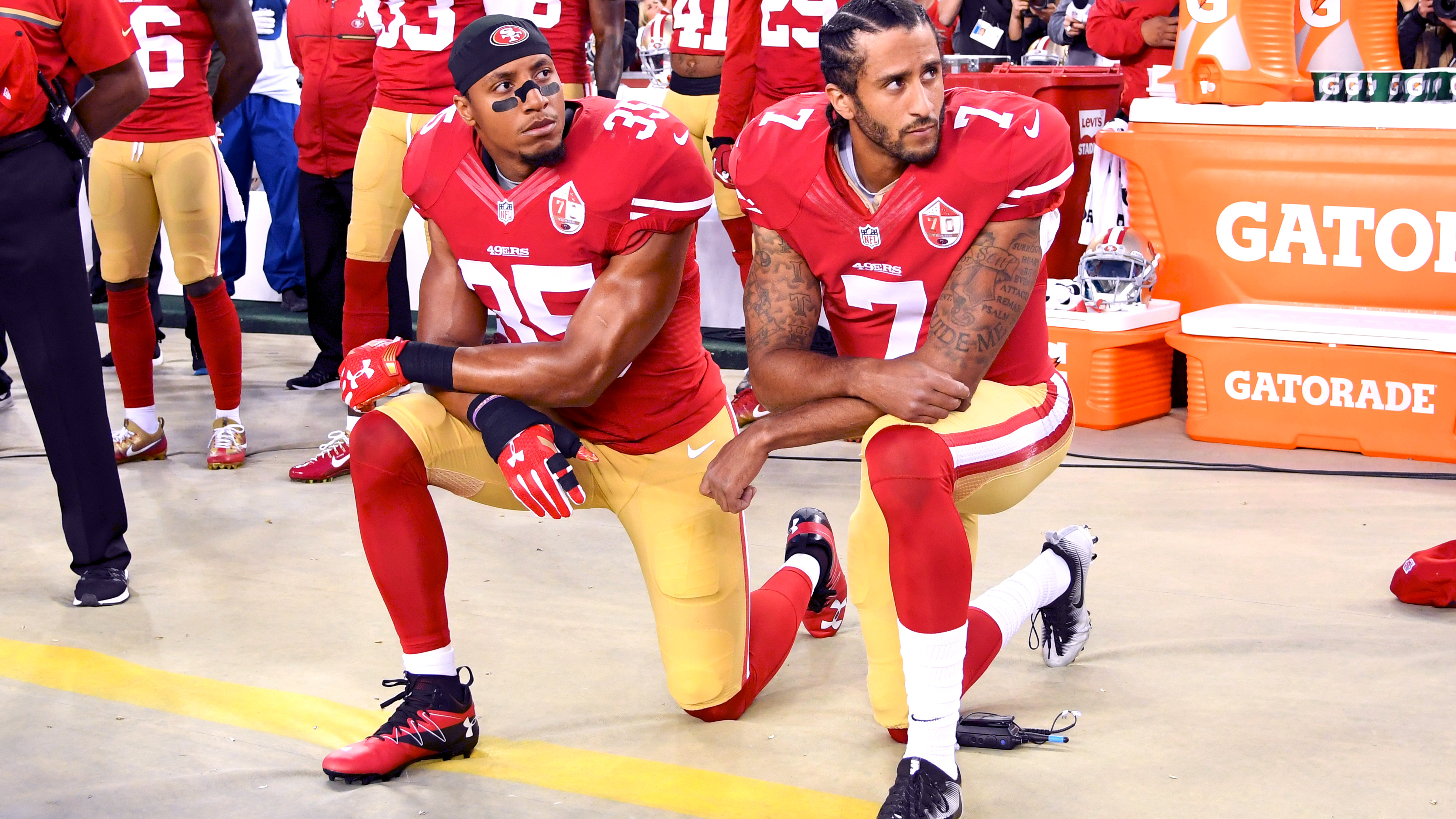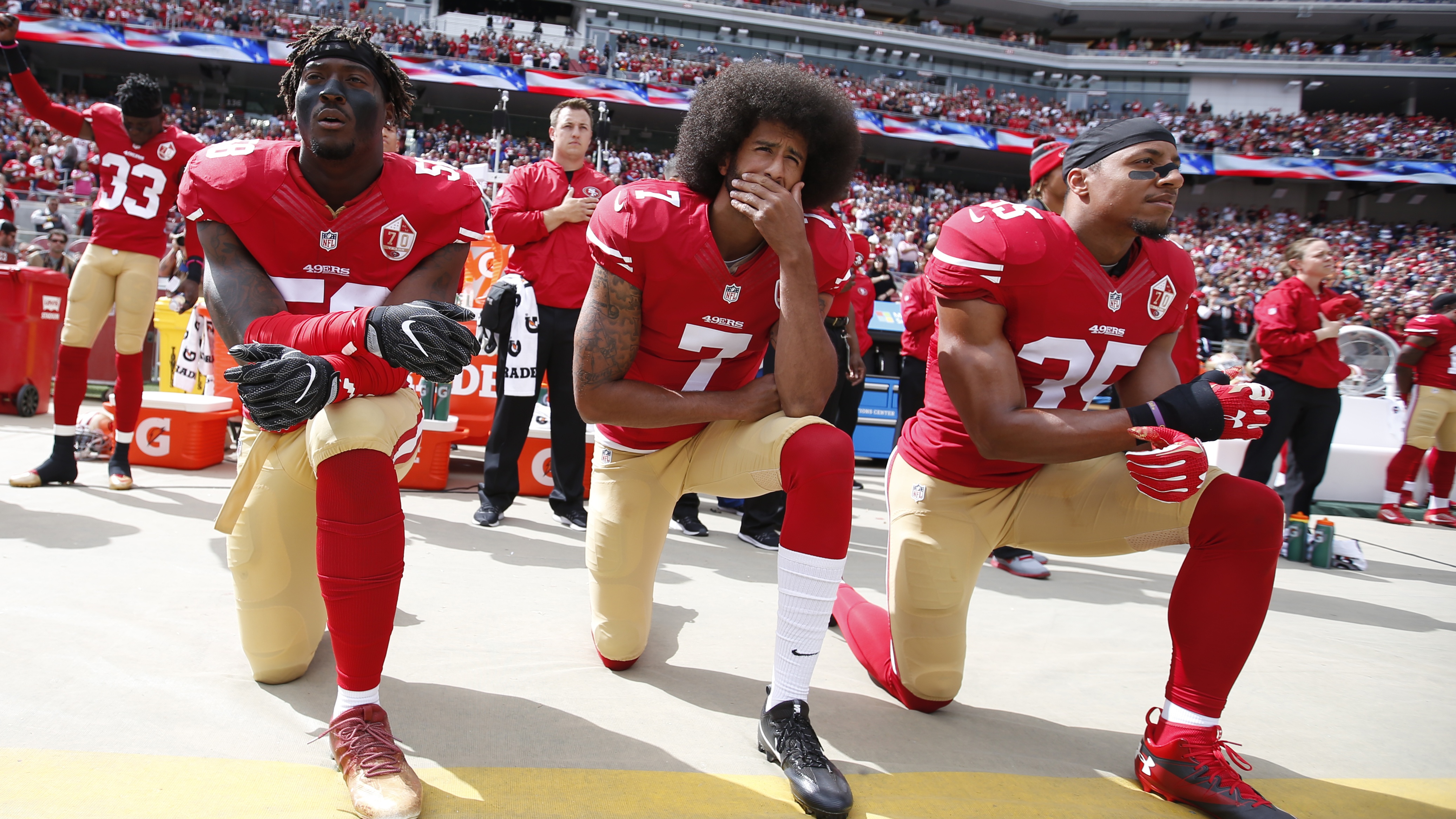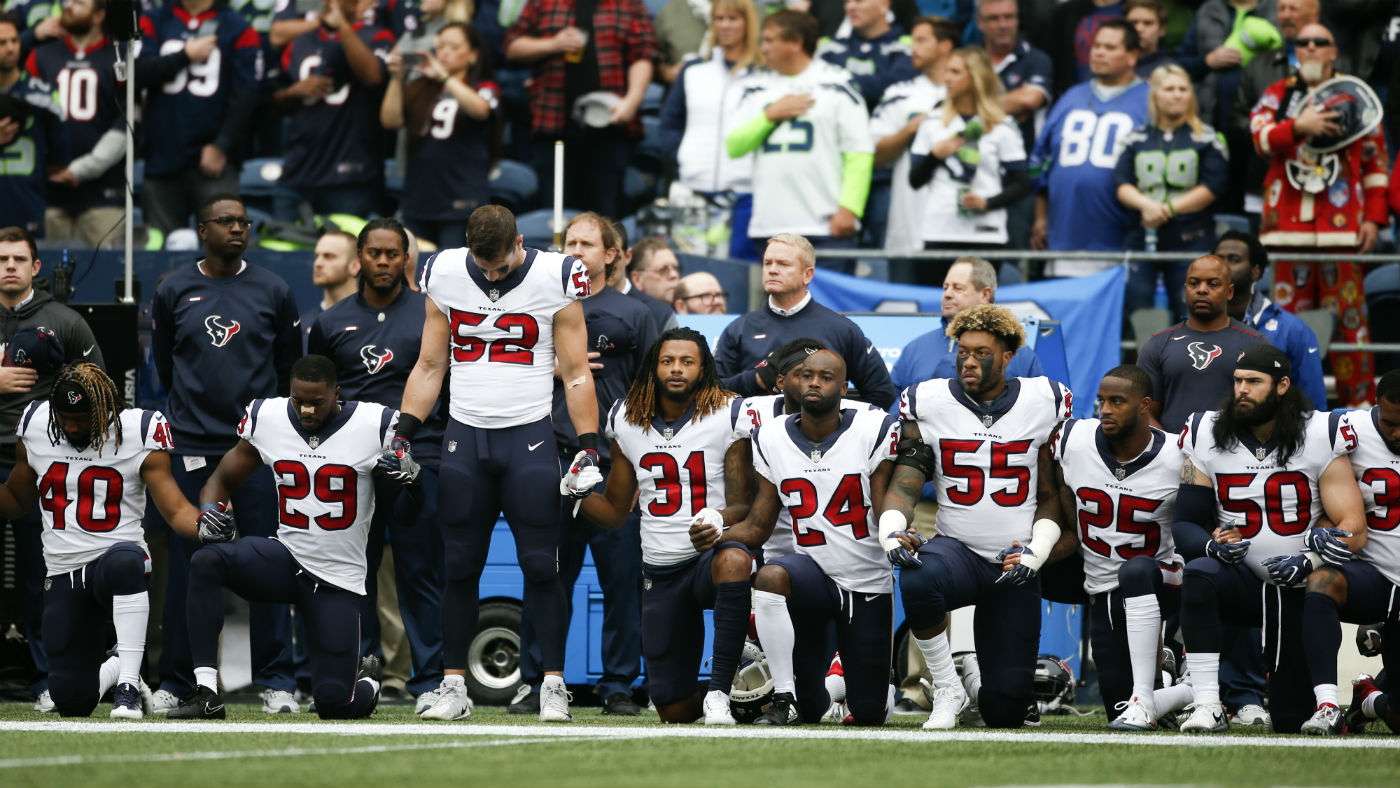Colin Kaepernick protests: Activist to start for 49ers
Controversial quarterback who refuses to stand for US national anthem is in starting line-up against Buffalo Bills

A free daily email with the biggest news stories of the day – and the best features from TheWeek.com
You are now subscribed
Your newsletter sign-up was successful
NFL star Colin Kaepernick, whose refusal to stand for the US national anthem before matches caused huge controversy last month, sparking a nationwide debate, is to be thrust further into the limelight after being promoted to starting quarterback for the San Francisco 49ers.
The 29-year-old, who has spent the past year operating as a back-up, will start Sunday's game against the Buffalo Bills as the 49ers aim to kick start their season after four defeats in a row, with their usual quarterback Blaine Gabbert dropped to the bench.
Head coach Chip Kelly has said it was a "football decision" to pick Kaepernick, but the repercussions are likely to be felt far beyond the NFL.
The Week
Escape your echo chamber. Get the facts behind the news, plus analysis from multiple perspectives.

Sign up for The Week's Free Newsletters
From our morning news briefing to a weekly Good News Newsletter, get the best of The Week delivered directly to your inbox.
From our morning news briefing to a weekly Good News Newsletter, get the best of The Week delivered directly to your inbox.
Kaepernick began his protests in pre-season and his stance has become a "contentious political chip in the race for presidential election", says Sky Sports.
"Despite being the back up so far this season, Kaepernick jerseys are the highest selling on the NFL's online site, and players – both team-mates and opposition – are growing in their support for his cause... With Kaepernick starting his first game of 2016, the focus will be on the quarterback more than ever."
Kaepernick's refusal to stand for the anthem will appear far more significant now he is a starter, says Steve Wyche on NFL.com. Quarterbacks are the most important members of the team but until now "Kaepernick didn't play so, for the most part, he was heard and not seen... [but] we now have one of the NFL's 32 starting quarterbacks not taking part in one of the NFL's most beholden pre-game traditions."
There has been plenty of discussion about whether the decision to play Kaepernick will benefit the 49ers in a footballing sense, but the announcement that he will be the starter is "so much bigger" than the game, says Jarrett Bell of USA Today. "Here we are at the intersection of sport and sociology."
A free daily email with the biggest news stories of the day – and the best features from TheWeek.com
Many who regard the player's stance as unpatriotic will be "wishing that he falls on his Afro and fails", but "with sales of Kaepernick's jerseys going through the roof, there are undoubtedly many people in this polarised nation who are pulling for him to tap his inner Tom Brady and throw for 400 yards – for reasons that have nothing to do with football".
Colin Kaepernick protests overshadow NFL opening weekend
13 September
The NFL got underway this weekend, but much of the attention during the opening round of games has been on politics rather than sport, with many players joining protests against inequality and racism in the US.
The controversy began in pre-season when San Francisco 49ers quarterback Colin Kaepernick refused to stand for the American national anthem and declared that he could not "show pride in the flag of a country that oppresses people of colour", prompting a huge row that has divided America.
The 49ers were not in action until Monday night, but many stars from other teams knelt or held their fists aloft during the national anthem in the course of the weekend's games. Kaepernick and his team-mate Eric Reid did the same on Monday night ahead of the 49ers clash with the Los Angeles Rams.
"As the Star Spangled Banner was played on a violin, tens of thousands of fans stood in silence. The entire field was covered in a huge American flag and on the sidelines Colin Kaepernick and teammate Eric Reid knelt in protest," says James Cook of the BBC.
"Some fans shouted at them to get up. They have been accused of disrespecting their flag and their nation but many other fans say they approve of the demonstration – which is aimed at highlighting inequality in the United States. The quarterback, who is African-American says too many black people are killed by police officers – and too many still do not have the same opportunities as white people."
The protests over the weekend had added poignancy as they coincided with the 15th anniversary of the 9/11 attacks.
But as The Guardian notes: "Colin Kaepernick finds himself a less isolated figure these days... A number of players knelt or held up their fists during Sunday's games on NFL opening weekend and while there is a risk the message behind the protests may get lost as viewers become accustomed to them, Kaepernick gained valuable publicity on the nationally televised Monday Night Football."
Kaepernick, who is black but was brought up by a white family, is no longer starting quarter back for the 49ers, despite leading them to the Super Bowl XLVII in 2013. He now spends most games sitting on the sidelines.
"He has, however, found a voice as an activist," says Les Carpenter of the Guardian. "In the past few months, he has grown out his hair, filled his Twitter feed with poignant comments on social issues, and wears a Malcolm X baseball cap. He is smiling more than he ever did in the past. When he addressed the media a few days after the Green Bay game, he didn't mumble a few words as he used to in press conferences but instead spoke thoughtfully for 20 minutes. He said he wanted to start a conversation about race. He said he had already done so with his team-mates and wanted people to do the same nationally."
He seems to have succeeded.
But much of the debate has revolved around whether football players have the right to get involved in politics. His actions have been "considered radical because they happened amid a sports landscape where provocative stances by prominent athletes have been rare, even during surging and searing national discussions over race, justice and politics", says the New York Times, even as the country heads towards a bitter presidential election campaign.
Some of those who have protested have already lost endorsement deals says the paper. It also notes that many have hailed Kaepernick for resurrecting the "firebrand" spirit of sportsmen like Muhammad Ali and sprinters Tommie Smith and John Carlos who were sent home from the 1968 Olympics for their 'black power' salute.
"These protests are sure to spur continued complaints that professional athletes are acting inappropriately, bringing politics into a formerly politics-free zone," says Alyssa Rosenberg of the Washington Post. "But of all the complaints levied against athletes who speak out about politics, this argument is the stupidest. From their infrastructure to their symbolism, just about every part of professional sports is highly political. Treating sports as a special zone of national consensus is the essence of denial."
-
 The environmental cost of GLP-1s
The environmental cost of GLP-1sThe explainer Producing the drugs is a dirty process
-
 Greenland’s capital becomes ground zero for the country’s diplomatic straits
Greenland’s capital becomes ground zero for the country’s diplomatic straitsIN THE SPOTLIGHT A flurry of new consular activity in Nuuk shows how important Greenland has become to Europeans’ anxiety about American imperialism
-
 ‘This is something that happens all too often’
‘This is something that happens all too often’Instant Opinion Opinion, comment and editorials of the day
-
 How taking the knee began
How taking the knee beganfeature NFL quarterback Colin Kaepernick popularised the gesture as a protest against police brutality and racism
-
 Houston Texans join NFL kneeling protest after owner compares players to ‘inmates’
Houston Texans join NFL kneeling protest after owner compares players to ‘inmates’In Depth Team owner Bob McNair criticised for ‘disrespectful’ analogy at players-owners meeting